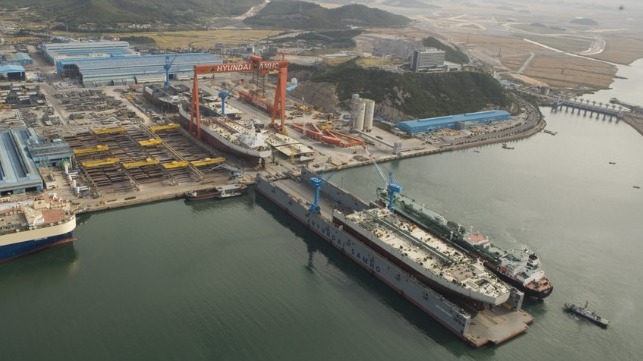HD Hyundai Marks Milestone in Development of Electric Propulsion for VLCCs

South Korean shipbuilder HD Korea Shipbuilding & Offshore Engineering working along with HD Hyundai Heavy Industries is reporting a breakthrough in the development of electric propulsion systems designed for use with supertankers. The design is part of a low-carbon emissions approach that the shipyard is pursuing for the next generation of tankers.
The application is centered on a 30-megawatt (MW) electric propulsion system and is designed for 300,000 dwt crude carriers. The division of HD Hyundai reports it completed the conception design in February 2023 and has now advanced with its development. They received an initial certification from Lloyd’s Register in February and now have been awarded Approval in Principle (AIP) from LR.
The system is designed to leverage medium voltage direct current (MVDC) and solid oxide fuel cell (SOFC) technologies to develop the power to drive the 30 MW propulsion system. They are reporting that the design is matched to the propulsion efficiency of larger conventional engines while achieving net-zero carbon emissions.
During the recent phase of the design project, which is being conducted in-house at the shipbuilder and HD Heavy Industries, they report several key advancements. The system's energy efficiency was improved by 20 percent compared to earlier models, while the power quality was boosted by about 40 percent. Notably, HD Hyundai, says this was achieved while also reducing the system's overall weight by approximately 20 percent.

that matters most
Get the latest maritime news delivered to your inbox daily.
The next phase of development calls for land-based demonstrations to take place by 2027. They expect to have a full-scale version of the propulsion system ready for a commercial introduction in 2028.
Shipyard executives said the propulsion system will be combined with other elements, including advancements in hull design. They are also developing specialized propellors optimized for the electric propulsion system. Combined they believe these innovations will give them a lead in decarbonization for large ships and position the company to be a leading builder of next-generation ships.
